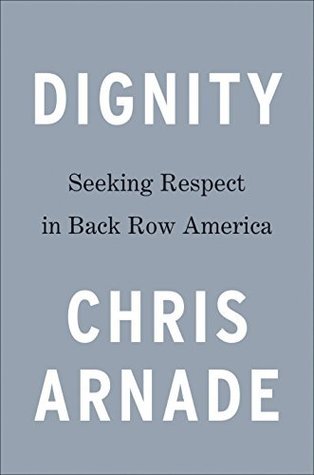More on this book
Community
Kindle Notes & Highlights
But I began to realize I hadn’t ended up much different at all. I had done pretty much what successful Americans do, regardless of their politics. I had removed myself from the realities of the majority of Americans. I was a member of an exclusive club, one requiring an elite education to enter. I was sitting in my expensive home, in my exclusive neighborhood, forming opinions and casting judgments about what was best for others largely just from what I read.
How do you want to be described? She replied without a pause, “As who I am. A prostitute, a mother of six, and a child of God.”
Most people didn’t ask for money, even the most desperate. Most just wanted to sit and talk with someone who wasn’t trying to save them, didn’t scold them, and didn’t judge them.
initially focused on black neighborhoods—places like Buffalo’s East Side; Selma, Alabama; Milwaukee’s North Side—places that, because of racism, had long been stigmatized.
McDonald’s was often one of the only restaurant options—and we make fun of them for going there. We pretend that the addicted take drugs because of bad character, not because it’s one of the few ways they have to dull the pain of not being able to live good lives in the economy we’ve created for them.
life focused on getting ahead by education. Putting education first and going to college and then grad school were expected, so I applied myself. I left my rural hometown and got into elite schools, which got me into elite jobs, which got me into an elite neighborhood. I was hardly alone.
Our metrics for success became how high the stock market got, how large the profits were, how efficient the company was. If certain communities, towns, and people, suffered in this, it was all for the greater good in the name of progress.
He explains before leaving, “We used to be the murder capital of the US, but there is hardly anybody left to kill. We used to be the drug capital of the US, but for that you need money, and there aren’t jobs or things to steal here.”
Rarely mentioned is the vast difference in the quality of our schools, the vast difference in how much help students get, and the vast differences in how many personal problems students face.
ME: You like it here? HIM: I am the happiest man alive. I have three boys and four grandchildren. Just tickled to death. Rural living is a different lifestyle. Who is happier? You have a family and a belly full and you are all set, that and Jesus in your life. Everything else is complications.
who when they hear I am a photographer from New York City writing a book, ask me to take their pictures.
Racism There are two McDonald’s locations in Milwaukee’s North Side,
For one thing, it still presumes that the main problem is a lack of education or credentialed achievement, implying that people who value less measurable forms of meaning get what’s coming to them. For another, affirmative action inflames racial tensions as it drives another wedge between the white and black members of the back row.
“I don’t want my daughter to stink like them niggers.”
If they looked like us, dressed like us, it would be easier to include them.”
“We all need to listen to each other more.” It is wishy-washy, but that is what I truly believe, because our nation’s problems and differences are just too big, too structural, and too deep to be solved by legislation and policy out of Washington. We need everyone—those in the back row, those in the front row—to listen to one another and try to understand one another and understand what they value and try to be less judgmental.
We have implemented policies that focus narrowly on one value of meaning: the material. We emphasize GDP and efficiency, those things that we can measure, leaving behind the value of those that are harder to quantify—like community, happiness, friendships, pride, and integration.


